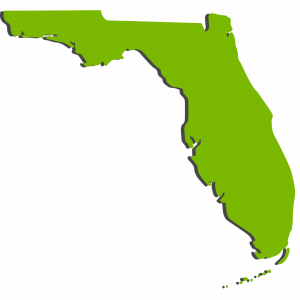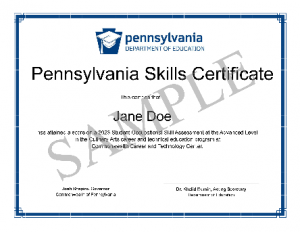Over the last two weeks, lawmakers have continued to work on federal funding legislation for the next fiscal year while the ongoing Presidential campaign comes into sharper focus. Elsewhere, Congress and federal agencies have been considering learner privacy legislation and efforts to increase learner internet connectivity.
FY25 Appropriations Continue to Take Shape
 This week both the House and the Senate remained in session. In the House, Republican leadership attempted to advance several federal fiscal year 2025 (FY25) appropriations measures through the full chamber. While lawmakers narrowly passed five of the annual dozen appropriations measures by late Thursday this week, these efforts have largely stalled due to inadequate support within the House Republican conference for the remaining funding bills. The Labor-HHS-ED appropriations bill—the funding measure that provides funding for the Carl D. Perkins Career and Technical Education (CTE) Act (Perkins V)—is among the measures with an uncertain future and although House leadership has indicated they will revisit this issue following the Congress’ upcoming August recess period.
This week both the House and the Senate remained in session. In the House, Republican leadership attempted to advance several federal fiscal year 2025 (FY25) appropriations measures through the full chamber. While lawmakers narrowly passed five of the annual dozen appropriations measures by late Thursday this week, these efforts have largely stalled due to inadequate support within the House Republican conference for the remaining funding bills. The Labor-HHS-ED appropriations bill—the funding measure that provides funding for the Carl D. Perkins Career and Technical Education (CTE) Act (Perkins V)—is among the measures with an uncertain future and although House leadership has indicated they will revisit this issue following the Congress’ upcoming August recess period.
As a reminder, the House FY25 Labor-HHS-ED funding measure proposes a $10 million increase for Perkins V’s state grant program and requests the U.S. Department of Education clarify its intent to regulate the federal investment in CTE later this year. However, the proposal also envisions significant funding reductions for many other workforce and education programs. Advance CTE and partners recently issued a statement regarding this proposal. The House has now adjourned a week early to begin the August recess period and lawmakers are expected to return to Capitol Hill in early September.
Meanwhile in the Senate, lawmakers have established topline spending caps for each of the dozen appropriations bills that compose the federal budget, including the FY25 Labor-HHS-ED funding measure. Importantly, this topline cap is higher than the House’s, indicating that the Senate is likely to take a different direction for workforce and education funding in the upcoming fiscal year. Next week, the Senate appropriations committee will formally consider and markup its FY25 proposal for Perkins V funding and other critical education and workforce development programs.
As these efforts continue to take shape, Advance CTE will continue to advocate for robust investments in Perkins V’s state grant program.
President Biden Ends Campaign and Endorses Vice President Harris
Over the past weekend, President Joe Biden formally announced that he was ending his Presidential campaign. Shortly after this announcement, he endorsed Vice President Kamala Harris. Throughout the week many leaders in the Democratic Party have followed suit and announced their support of her candidacy. Prior to becoming Vice President in the current administration, Harris served as the U.S. Senator from California where she advocated for public K-12 education, teacher pay, and increased access to and support for postsecondary education and job training.
Former President Trump Names J.D. Vance as VP Candidate
Last week Congressional Republicans headed to Milwaukee, Wisconsin for the party’s national convention. During the event, former President Donald Trump announced that he selected Ohio Senator J.D. Vance (R-OH) as his running mate. Vance was first elected to the Senate in 2022 and rose to prominence with the publication of a book entitled Hillbilly Elegy. During his time in the Senate, Vance has a limited record on education issues but has co-sponsored several pieces of legislation prohibiting diversity, equity, and inclusion (DEI) policies in schools as well as proposing to allow bipartisan Safer Communities Act funding to be used for hunting, archery, and gun shooting programs. He has also supported bans on cell phone use in classrooms.
FCC To Allow Hotspots for E-Rate
Last week the Federal Communications Commission (FCC) voted in favor of a new order authorizing the use of E-Rate program funding for Wi-Fi hot spots and wireless internet access services. The 3-2 vote largely broke along party lines, with two Republican Commissioners arguing that the order goes beyond the FCC’s existing statutory authority. The order is aligned with FCC Chair Rosenworcel’s “Learn Without Limits” initiative which broadly calls for more innovative uses of E-Rate resources to increase access to the internet while allocating additional funding for several pilot projects including Wi-Fi on buses.
Senate Considers Learner Privacy Legislation
This week, Senate Majority Leader Chuck Schumer (D-NY) announced that the Senate would take a procedural step to advance two pieces of federal data privacy legislation intended to protect children online. This includes the Kids Online Safety Act (KOSA) and the Children and Teens Online Protection Act (COPPA 2.0). Both measures appear to have bipartisan support and would strengthen protections for youth online. Yesterday, the Senate advanced these measures by a wide margin and is set to further consider them next week.
ED To Enforce Title IX Rule Next Month
This week the U.S. Department of Education’s (ED) Office of Civil Rights (OCR) announced that it intends to enforce recently updated Title IX regulations set to go into effect August 1 of this year. As a reminder, the regulations would establish a more uniform grievance process for schools and institutions adjudicating allegations of discrimination or misconduct. The rule also codifies new protections for LGBTQ+ learners, staff, and others against discrimination, including discrimination based on one’s gender identity. However, 26 State Attorney Generals have sued to block the rule and lawmakers in the House recently voted in favor of repealing the new regulation. These efforts have led to several court injunctions, blocking the rule from going into effect in many of these same states. In anticipation of beginning to enforce the new regulation where it is currently permitted to do so, OCR has published several new resources to support states and schools to comply with these new requirements.
DOL Announces New Round of Community College Training Grants
This month, the U.S. Department of Labor announced the availability of new funding through a fifth round of Strengthening Community College Training Grants (SCCTG)– a program authorized by the Workforce Innovation and Opportunity Act (WIOA) that provides  resources for community colleges to develop and provide robust training opportunities for learners. Applications for this funding are due September 24, 2024. Advance CTE is strongly supportive of the SCCTG program and is currently advocating for its codification in WIOA as discussions continue regarding reauthorization of this legislation.
resources for community colleges to develop and provide robust training opportunities for learners. Applications for this funding are due September 24, 2024. Advance CTE is strongly supportive of the SCCTG program and is currently advocating for its codification in WIOA as discussions continue regarding reauthorization of this legislation.
Read more about the round of grants
Steve Voytek, Policy Advisor


 In the aftermath of the coronavirus pandemic, the strains on the healthcare system continue to be felt, with
In the aftermath of the coronavirus pandemic, the strains on the healthcare system continue to be felt, with Florida
Florida  In Washington,
In Washington,  Wisconsin
Wisconsin  To see more policy trends and access our policy tracker, check out our
To see more policy trends and access our policy tracker, check out our  Some states focus on a broad strokes approach that expands access to the sector as a whole. Last year,
Some states focus on a broad strokes approach that expands access to the sector as a whole. Last year,  Other states developed more focused career-specific pathways in close collaboration with industry partners.
Other states developed more focused career-specific pathways in close collaboration with industry partners. 


 State CTE leaders utilize data as feedback to continuously improve systems, celebrate high-quality programs, and target areas for improvement. For example, the Pennsylvania Department of Education (PDE) utilizes NOCTI/NBS assessments and data for various purposes, including program evaluation, curriculum alignment, instructional improvement, professional development, and accountability. Learners meeting state-established benchmarks are eligible for the Pennsylvania Skills Certificate (PSC), recognizing individual advanced technical skill achievement.
State CTE leaders utilize data as feedback to continuously improve systems, celebrate high-quality programs, and target areas for improvement. For example, the Pennsylvania Department of Education (PDE) utilizes NOCTI/NBS assessments and data for various purposes, including program evaluation, curriculum alignment, instructional improvement, professional development, and accountability. Learners meeting state-established benchmarks are eligible for the Pennsylvania Skills Certificate (PSC), recognizing individual advanced technical skill achievement. High-quality CTE systems involve business/industry partners in verifying skills, ensuring learner assessments accurately reflect expertise. This practice not only benefits learners but also provides industry employees with an opportunity to contribute meaningfully to CTE schools and programs. As one evaluator recently summarized, “I am always willing to set time aside to work with these learners and programs, as this is the future of my industry–one that I care about and want to impact.”
High-quality CTE systems involve business/industry partners in verifying skills, ensuring learner assessments accurately reflect expertise. This practice not only benefits learners but also provides industry employees with an opportunity to contribute meaningfully to CTE schools and programs. As one evaluator recently summarized, “I am always willing to set time aside to work with these learners and programs, as this is the future of my industry–one that I care about and want to impact.”
 Additional Resources can be found in the Perkins V section of the
Additional Resources can be found in the Perkins V section of the